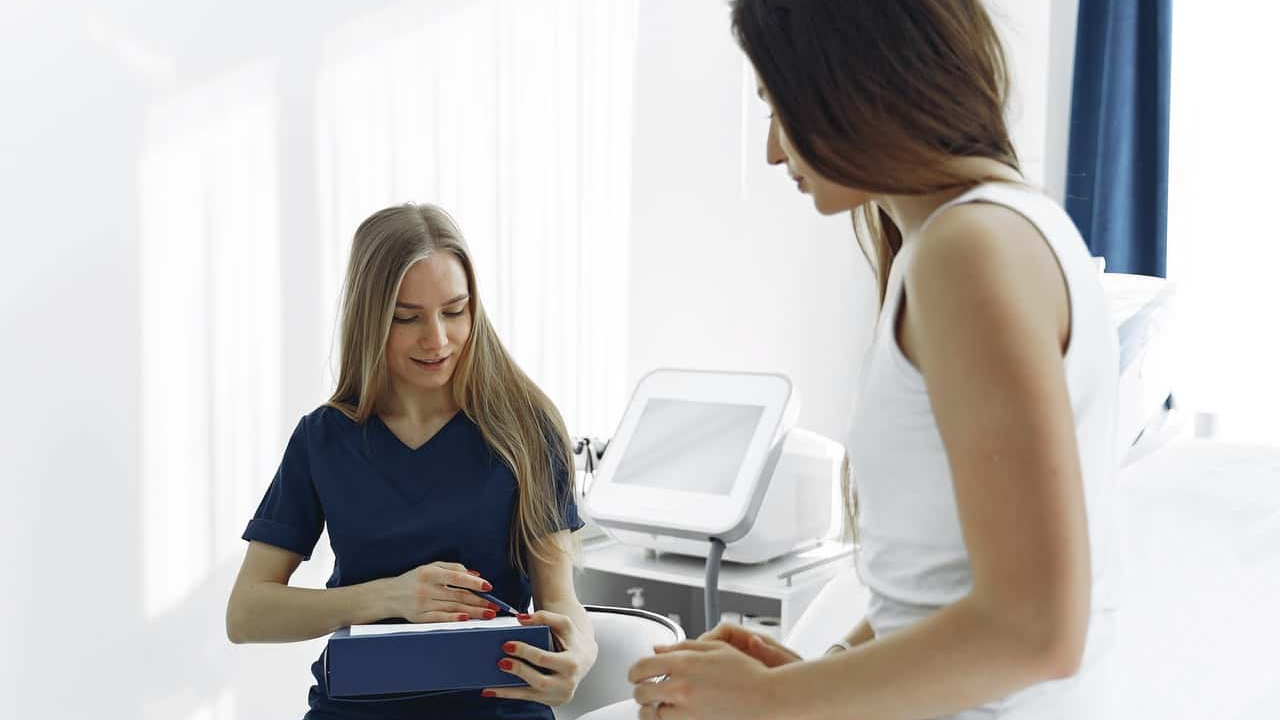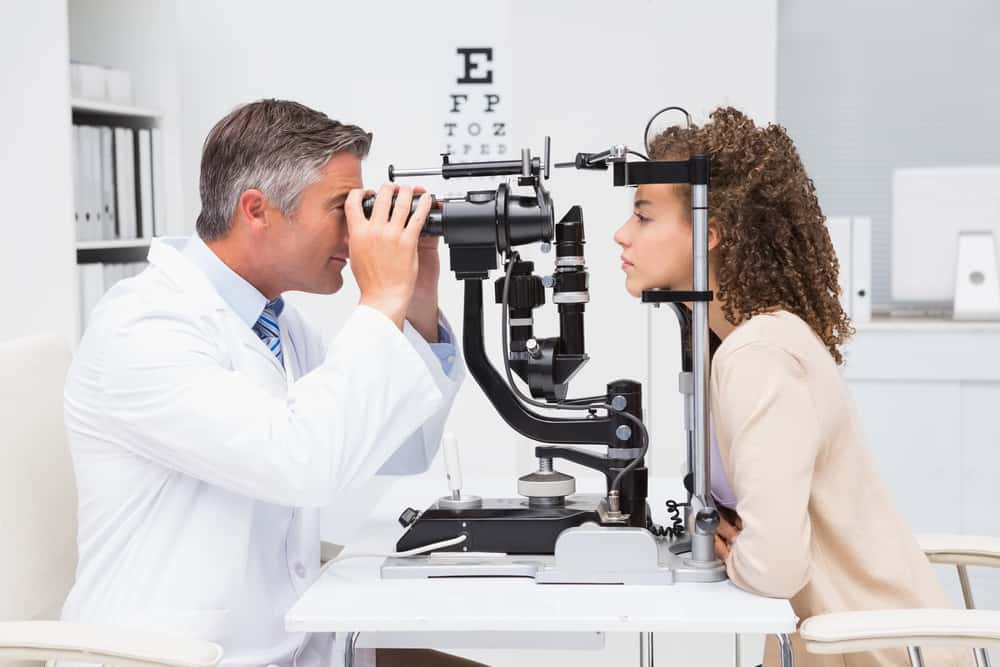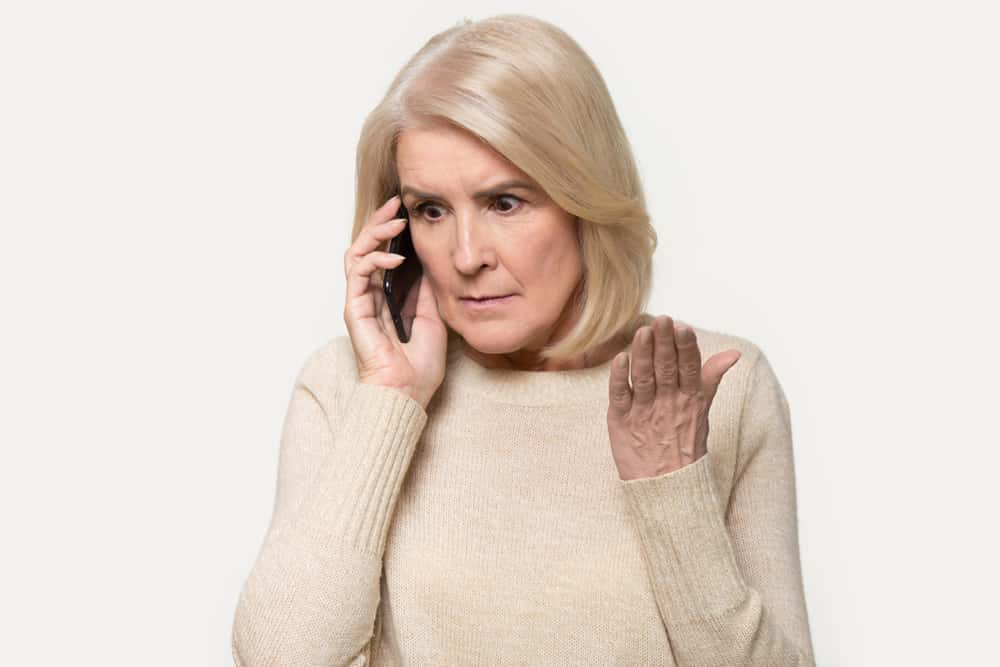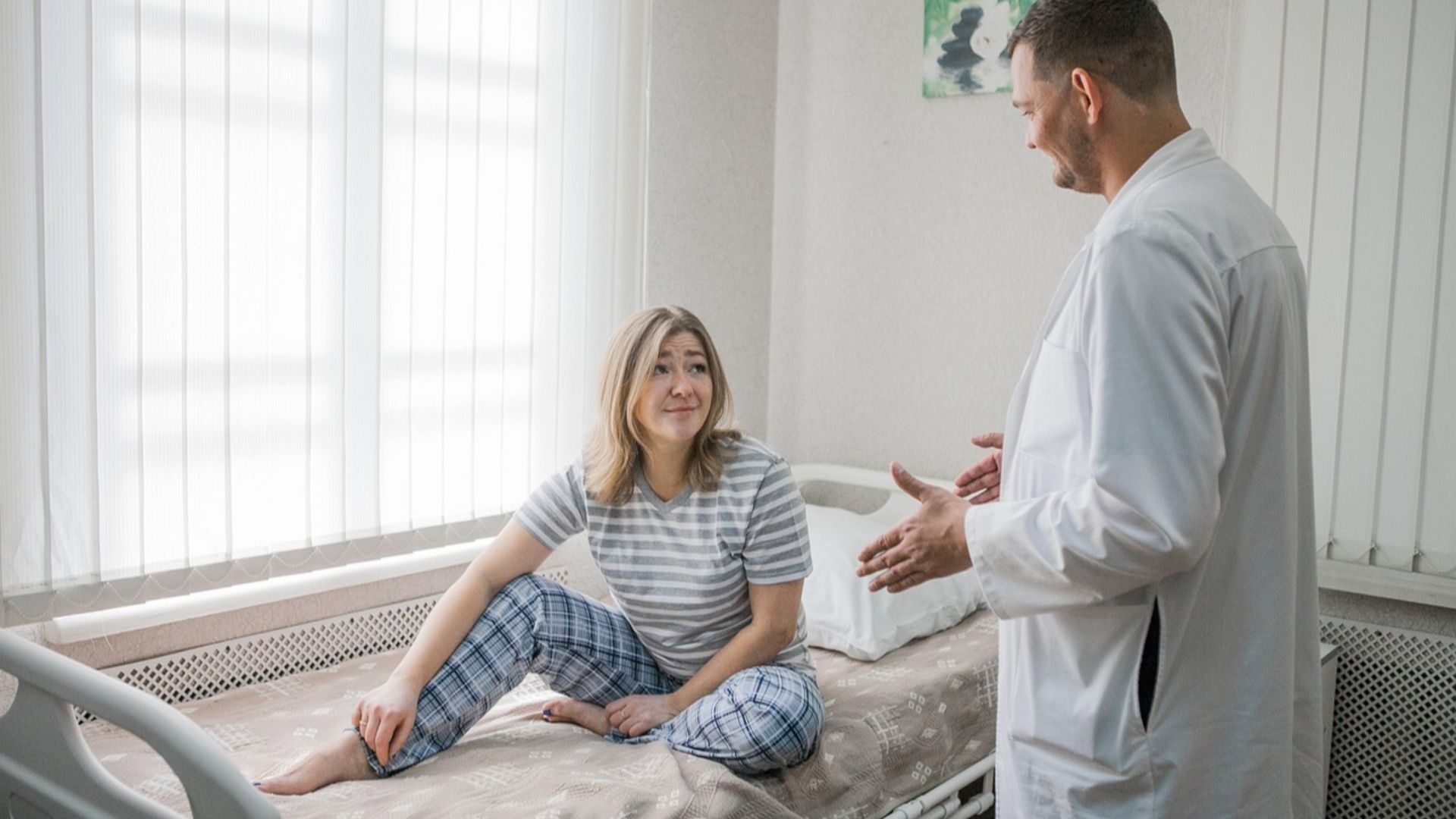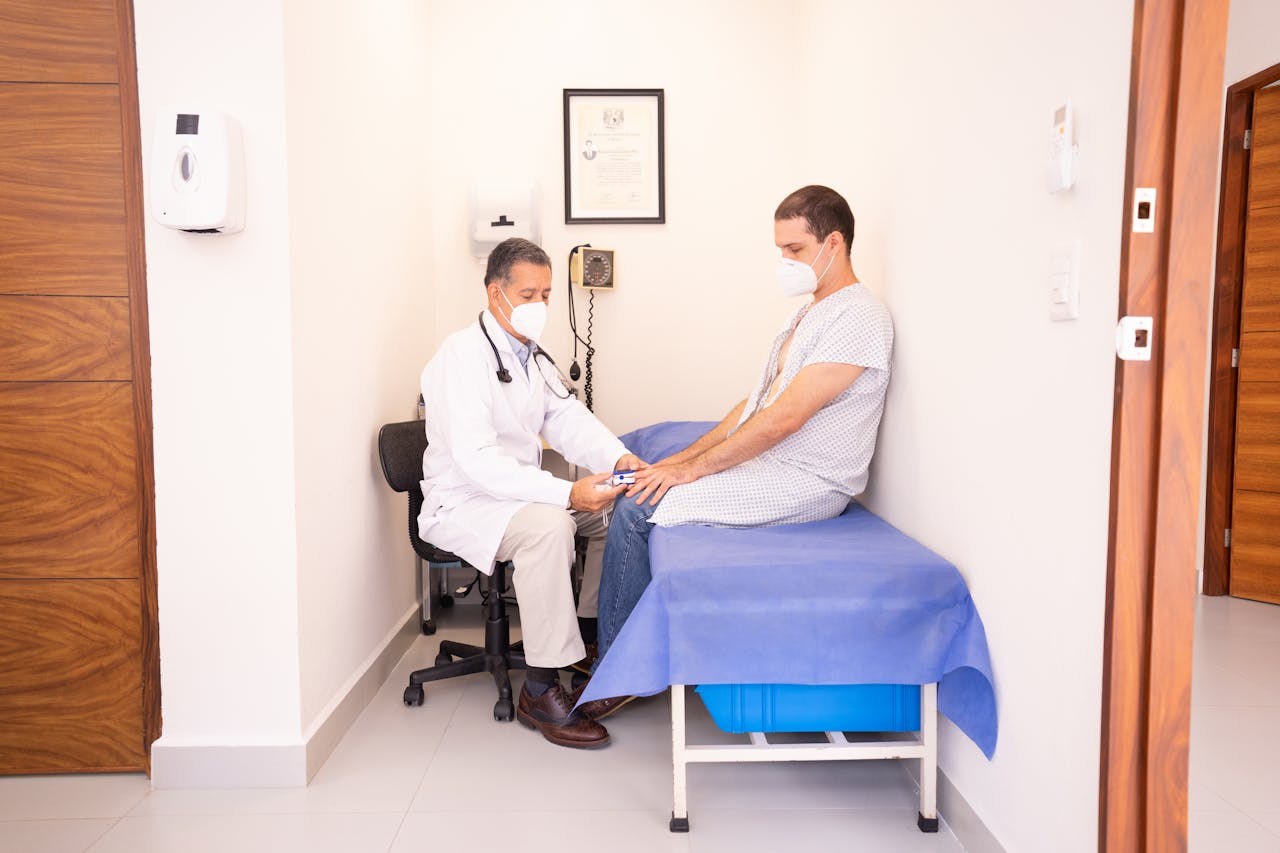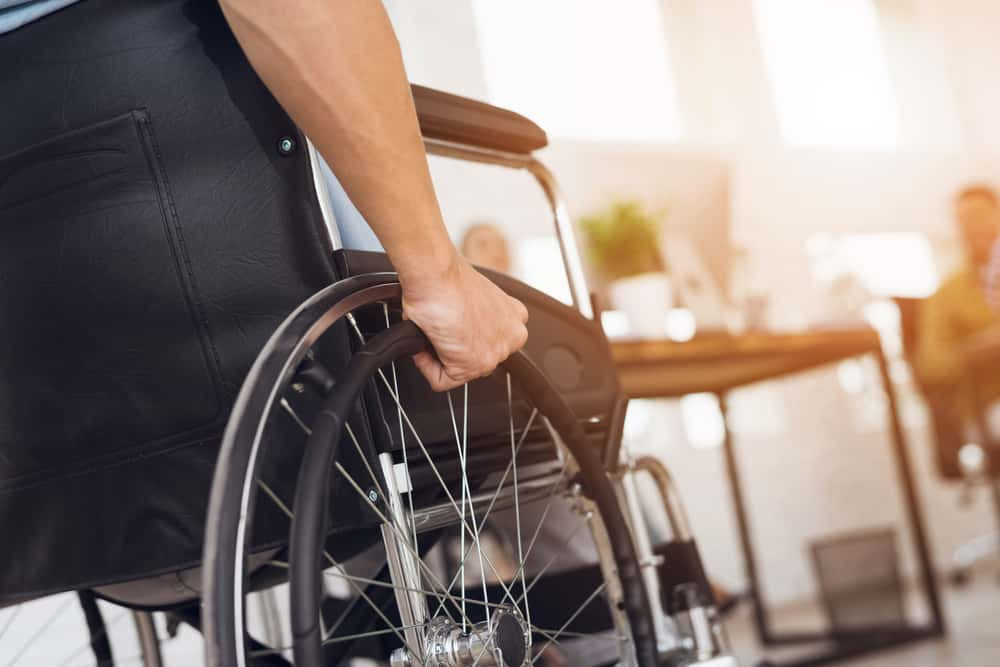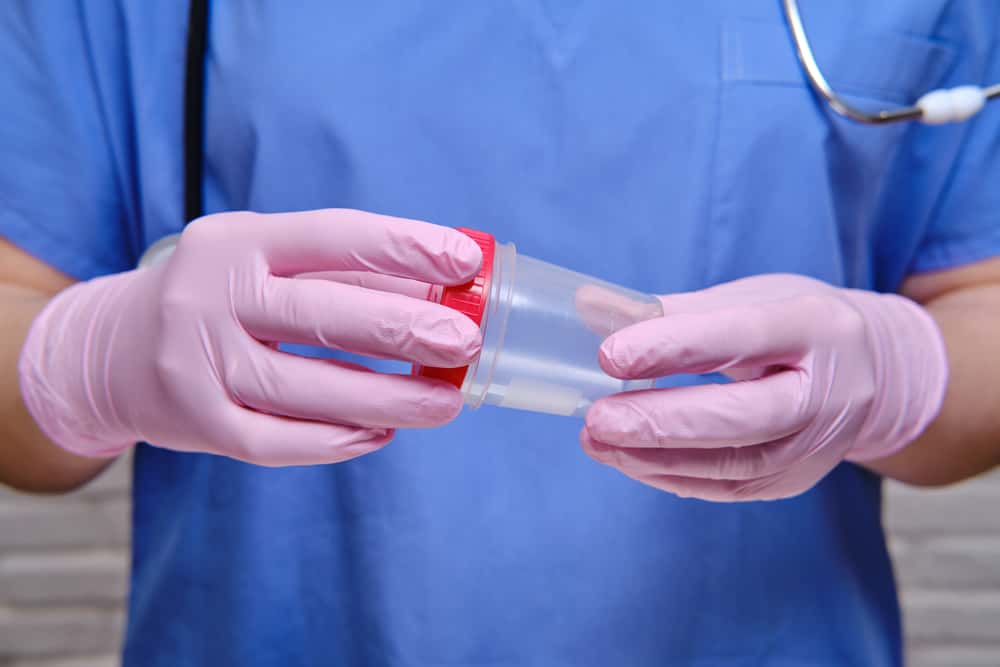When it comes to our health and well-being, we generally assume that we can trust all doctors—but unfortunately, not all doctors are created equal. From a complete and utter lack of bedside manners to remorseless wrong diagnoses, here are some of the most unprofessional doctors ever.
1. A Waste Of Time
I paid a visit to the doctor's office to get my chest examined because it was giving me a lot of discomfort. His demeanor seemed strange as he conducted the check-up. I didn't recognize it at the time, but his actions felt less than professional.
Because my chest was causing me a lot of physical discomfort, I asked about the possibility of having a reduction surgery. His reaction shocked me. He became very upset and sternly told me to never consider such an option.
Surprisingly, he even referred to my chest as being "lovely and delicate". This being said by a man in his 50s, while I was only 18 or 19 at the time, felt odd. So essentially, I had to spend 50 bucks only to have my health concerns dismissed, making Master Roshi look like a good doctor in comparison.
After this experience, I had no choice but to find another doctor who was willing to help me find a solution to my problem.
2. Not So Hip
My wife's granddad struggles with serious dementia. He lived solo but my mother-in-law and I dropped by three times daily to ensure he ate and took his medication.
Some weeks back, he couldn't stand in the morning and complained about hip pain, so we took him to the hospital. However, due to the pandemic, rules prohibited her from joining him in the ER, resulting in him sitting alone for four hours. Things went downhill quickly...
When the doctor asked him what ailed him, do you know what he said? "I don't know". Naturally, his dementia prevents him from understanding. He just sat there, bewildered.
So, the doctor called my mother-in-law and assured her he was okay and could return home. My mother-in-law was doubtful, so she asked him straight-up: "Can he move about? Can he use the restroom independently?"
The doctor casually answered, "Yeah, he's okay". He then instructed the staff to take her dad home. But here's the twist—two guys had to cart him in a special chair since he couldn't even shuffle the short distance into his home. This all unfolded on a Friday, and we resolved to stay the weekend at his place to care for him.
We returned to the ER with him on Monday and guess what? Seriously, take a stab at his diagnosis. He had fractured his hip. This poor man had been walking around for three days with a broken hip. But, sure. He's fine.
3. One-Minute Diagnosis
I accompanied my mom to a neurologist's appointment since her general doctor thought she might have Parkinson's. Our experience at that clinic couldn't have been any worse.
After nearly an hour of waiting, the neurologist finally walked in, did a quick assessment, confirmed she had Parkinson's, and suggested we watch some YouTube videos for a better understanding of the disease, before exiting the room. The entire interaction lasted less than sixty seconds.
The most frustrating part? They still billed the insurance. Thankfully, my mom's covered by Medicare, so we didn't end up with an enormous debt. I decided not to file a complaint about the doctor, as I just didn't have the mental energy to deal with it.
4. All Pain, No Gain
Back when I was a young teen, around 13, I had a frightening experience rollerblading. I had a bad fall and my knee dislocated. I was stuck alone in a quiet residential area and there was no way for me to call for help—no cell phone back then, you see.
It must have been somewhere around 1:30 on a weekday, and I found myself alone and hurting until, thankfully, an adult discovered me. I managed to contact my grandma.
But, here's the kicker. With all the time I was left lying there, by the time I got to the hospital, I was relatively calm despite still feeling significant pain. By then, my knee had seemingly popped back into its normal position.
So, to the nurse checking my vitals, my blood pressure was just normal and, because I wasn't crying, she presumed all was well. My swollen knee didn't seem that unusual to them, so they didn't bother with any scans. The doctor even wrongly accused me of wasting the ER's precious time.
He went on about how if my injury was genuine, they would easily spot it and I would be screaming out in unbearable pain. But he made a terrible oversight, and it's something I still carry with me. Despite the repeated pain, I kept returning to the doctor, just hoping they'd take my word seriously.
For two long years, every half year, I'd revisit that same familiar agony. Each time, the doctor turned a deaf ear to my pleas, refusing to do any further checks, insisting I was fine. And that's not all.
Frustratingly, at the point of a year and a half, he outright denied me any pain medication and suggested I visit a mental health professional instead. As it turns out, the real issue was a connective tissue disorder I have—which not only predisposes me to more injuries but also lowers my regular blood pressure.
It was only when I turned 15, that they finally recognized something was amiss and sent me to physical therapy (PT). My knee never fully recovered to its pre-accident state. The sad part is, the PT said I could have been back to normal if I'd started PT right from the start.
5. The "Pill Seeker"
I visited the physician since I was suffering from a urinary tract infection (UTI). Being in my twenties, I was pretty familiar with the symptoms of a UTI and knew when it was time to seek medical help.
However, the doctor took this opportunity to lecture me extensively about the risks of seeking pills unnecessarily and how excessive antibiotic use can lead to the growth of super-resistant bacteria. After I left, a call came through—and it made my blood boil.
It was from the nurse, not the medical expert, awkwardly informing me that my test results were indeed positive for a UTI and assuring me that they'd promptly send the necessary antibiotics pack to my local drug store.
6. I'm Right, You're Wrong
I'd just wrapped up a scan, in the worst pain I've ever experienced, and was told the results would take anywhere from half an hour to a couple of hours. Meanwhile, the nurse walked in and couldn't stop speculating that it's probably just a UTI and that I'd be good to go soon.
Despite the doctor's belief that it wasn't a UTI, she got upset when I insisted it was not a UTI at all. After exactly thirty minutes, the doctor rushed into my room, as pale as can be. He said I needed to go to surgery in just five minutes.
Apparently, my intestines were twisted at a valve and that part had to be removed immediately. When the nurse came back to move me into surgery, she at least gave me an apology.
7. The Judgmental Nurse
A few years back, I had an appointment for a blood test at a clinic. They called me into the room, I settled into the chair, and I offered up my arm for the blood to be drawn.
At the time, my arm had some pretty noticeable scars from past self-harm, something I'm admittedly very sensitive about. The technician saw it and was noticeably shocked, making a quite unsettling comment.
She blurted out, "How awful! What could have led you to harm yourself in this way?" She just stood there, waiting for me to reply. It wasn't concern in her voice but more a note of disgust. I informed her it was personal and requested she proceed with the blood draw.
I had to assert this several times before she finally started. All through the procedure, she persisted in telling me that I was "way too young to be depressed", and my scars are a "terrible self-infliction".
With a needle in my arm, I wasn't able to just bolt from the room. I blushed red with embarrassment and tears welled up in my eyes. I was so humiliated and upset, I was lost for words.
I simply waited out the procedure and hastily exited the room once it was over. Once I composed myself, I found the company's online feedback form and filed a complaint, in addition to leaving a voicemail on their customer service line.
I never received a response, but I remain hopeful that my feedback was addressed, and that the technician was spoken to. I sincerely wish that no one with a history of self-harm has to endure the humiliation and shame that was imposed upon me that day.
 cottonbro studio, Pexels8. Stirring Up Drama
cottonbro studio, Pexels8. Stirring Up Drama
Once upon a time, a doc checked me out because I was feeling uncomfortable 'downstairs.' He dispatched samples for some lab work. As we awaited the results, which took several days, he gave me the shock of my life—he diagnosed me with an STD.
By then, my wife and I had been together for a decade, so I bet you can guess how heavy the air got during those following days. We ended up in heated debates about who was responsible for this STD—you could cut the tension with a knife.
Accusations of infidelity and dishonesty flew around, causing emotional distress, hurt, and a feeling of betrayal... But the plot twist? all I had was a bladder infection.
 Shutterstock9. Hard To Ignore
Shutterstock9. Hard To Ignore
"Sorry, I don't detect a lump," the doctor said to me. Regardless, I was sure there was a lump, but it seemed the doctor just wasn't picking up on it. Getting an ultrasound took a crazy-long time, about six weeks, then it turned out I was right—it was cancer. I'm okay now, but that doctor was just plain wrong.
Testicular cancer is the top cancer among males between 20 and 35, so it really bugs me how casually he brushed off my concern. The lump felt like a tiny pebble, hardly noticeable at all. I wasn't in any pain, so maybe it was hard to identify, but that doesn’t give the doctor a free pass.
I found myself repeating at every appointment that something felt off and if I hadn’t, I doubt I would’ve gotten that ultrasound. If something doesn’t feel right, trust your gut.
10. Those Jokes Aren't Funny
As a psychiatric nurse, I was tasked with accompanying a resident from a mental health facility to the public health department for a vaccination. The doctor asked the patient for their address, to which they mentioned the name of their institutional residence.
Smiling broadly, the doctor then crudely joked, "Oh, is that the place where all the dangerous lunatics reside?" Unfortunately, it only got rougher from there.
It's essential to remember that this particular individual had been diagnosed with paranoid schizophrenia and had a history of a serious violent act. I was taken aback and thought, seriously, did he just say that?
The patient, however, simply let it slide. After administering the vaccine, the doctor, still smiling ridiculously, commented, "I just delivered a dose of poison into you; what's your take on that?"
Internally, I debated whether I should step in immediately or wait for a few moments if the patient decided to retaliate physically. Luckily, nothing of that sort transpired.
Leaving as quickly as possible, I checked up on the patient later, who seemed alright and brushed off the doctor's comments as idiotic humor unrelated to him because he didn't consider himself mentally sick.
Dissatisfied with the doctor's behavior, I took it upon myself to issue two complaints—one to his superior and another to our lead psychiatrist.
11. Waiting For Nothing
I once had a doctor's appointment where the doc didn't even bother to show up. I'd been in the exam room for almost three quarters of an hour when a medical assistant finally turned up.
He wondered why I was still around. I told him that I was waiting to see the doctor, to which he informed me, "The doctor's gone! We're shutting down for the day." Rather than trying to get the doc back, they just told me to book another appointment. But I chose just to look for a new clinic instead.

History's most fascinating stories and darkest secrets, delivered to your inbox daily.
12. Small Town Stereotype
During my appointment, the doctor denied the need for surgery to address my condition, because he had the same issue and could manage it with exercise. But that was far from the worst part.
He also assumed that I didn't need to focus on my physical health, just because I seemed fine, "especially compared to the average person in your town," he added.
I took time off from work and traveled for an hour to meet this doctor, only for him to dismiss my concerns and take a jab at my hometown. I refused to let that slide. I challenged the $300 consultation fee, arguing that I didn't receive any help, and they agreed to waive it.
 Miriam Doerr Martin Frommherz, Shutterstock
Miriam Doerr Martin Frommherz, Shutterstock
13. Zero Manners
The doctor informed me that, if I chose to move forward with treatment and secure a place in the ward, I would need to go bald. Interestingly enough, the treatment had no relation to my scalp at all.
The doctor had zero compassion, coupled with a discourteous attitude towards her fellow healthcare workers. Voicing my uncertainty about remaining in the ward to a nurse, she however managed to convince me to venture a chance at it.
As I entered the ward on that initial day, the doctor's first salutation was, "Hey, remember me? I'm that doctor you don't like". Seriously? Who addresses a person who's ill and undergoing emotional turmoil in such a manner?
14. Shame On You
I suffered from diabetic ketoacidosis, often referred to as DKA, as a by-product of type 1 diabetes and a severe stomach virus. Days had passed without a proper meal and I was dealing with pretty bad diarrhoea. During my time in the ICU, where I was being treated, I ended up having a mishap in bed.
Although I wasn't permitted to move by myself, and my attempts to summon help via the call button seemed fruitless, I completely understood the situation—I knew the ICU was filled with critical patients and my case chiefly required regular care for my insulin drip.
A training CNA had a newcomer observing her and when I stood up, the trainee couldn't hide her disgust. She gagged out loud and muttered curses while changing my sheets. I understand bodily waste is not pleasant, but her reaction just added to my embarrassment and feelings of shame.
The chief CNA asked her to step out and apologized on her behalf. All I requested was that she doesn't return to my care, a request they honoured.
15. Religious Reasoning
My mom was feeling unwell and went in for a brain scan. The initial results suggested there might be a tumor or some fluid in her skull. The doctor's comment during the result sharing was downright infuriating.
He said, "Perhaps, this is God's sign that her time has come." My mom, vibrant and full of life even in her 50s, was understandably enraged and retorted, "God has nothing to do with this."
As fortune would have it, she was completely fine. The symptoms she was experiencing stemmed from a completely different issue, and the initial murky scan results might have just been a mishap due to machine or human error.
16. My Breaking Point
"My therapist really left me in a bind," I relayed, speaking of my experience at the mental health center on the airforce base. This psychologist, who never booked a subsequent session with me, left me feeling abandoned. I'll never forget how he treated me.
At 19, I was grappling with clinical depression. He was the guy, the one sporting a psychology Ph.D., who was supposed to help me manage. But when I started to crack under the college stress, he seemed to give up on me. And it really makes me question what kind of advice he's giving to veterans.
17. Thanks A Lot, Mom
At the age of 17, I discovered a lump in my breast and felt pretty scared. My mom took me to her own gynecologist for a check-up, since she wasn't really familiar with my doctor.
After the doctor's examination, he diagnosed me with a condition he called fibrocystic disease. He mentioned that hormones could potentially aggravate it and knowing I was on birth control, I asked him if I should stop using it.
His response was curt, telling me I shouldn't be on birth control at all and then he promptly left the room. There was no further clarification about what fibrocystic disease was, or any specific guidance on how I should manage it.
After waiting for about 20 minutes, I was expecting someone to come back and let me know that I could get dressed. Eventually, a nurse walked in, glanced at me, and said, "You can get dressed now."
I replied, "I AM dressed." She gave me another look, then just turned on her heel and left without saying anything else. I never returned to that doctor's office. My next step was to research fibrocystic disease at my college library, although the information I found didn't provide much insight on how serious it was or what actions I needed to take.
In the end, I visited another gynecologist and discovered that I didn't have fibrocystic disease at all but rather fibrous breast tissue. I decided to have the lump removed due to its persistent discomfort. Thankfully, no lumps or pain have reoccurred since then. Let's just say, I didn't have warm feelings towards that initial doctor.
And my mom, despite being the one who initiated my birth control use and yet agreed with the doctor, didn't receive much appreciation from me either. It certainly didn't feel like having the loving support you would expect from your parents or medical practitioner...
18. "Standard" Questions
Here's a funny story that you might not consider very professional: I took my 92-year-old mother to a follow-up visit with her regular doctor. There was a new medical assistant there doing their job by asking some medical history questions off a list.
She asked my mother when her last period was, and I was a tad anxious to hear mum's response because she's really formal and old-fashioned. She'd never usually discuss women's issues with her sons.
But I saw a glint in mum's eyes I hadn't seen in a long time as she coolly replied, "Can't provide an exact count of months, but I'm fairly certain it was sometime late in the 1960s."
The medical assistant took it gracefully and laughed along with us, apologized sincerely, and moved on to the next rather unexpected question. "Think there's a chance you could be pregnant?"
 Antoni Shkraba, Pexels19. Holding It In
Antoni Shkraba, Pexels19. Holding It In
I ended up in the hospital due to a serious car accident. Regrettably, post surgery and general trauma effects, I found it very difficult to urinate. I would sense the need to, but I just couldn't seem to relax my muscles to let it happen.
On the first day, the hospital staff would use a temporary catheter whenever I felt the need to urinate. It wasn't a pleasant experience, but I managed. However, the situation took a turn when it was time for the night nurse's shift.
I informed her at about 8:30 pm that I needed assistance, but after a bladder scan, she assured me there wasn't enough "fluid" in my bladder to necessitate catheter usage. I complained again at 10:30 pm, but she brushed me off, stating, "I performed the bladder scan, you're okay".
Finally, at 4 am, she consented to use the catheter and shockingly removed 1.3 liters from my bladder.
20. The Start Of It All
Back in junior high, I decided to join the basketball team. This meant I had to undergo a medical test, but the school insisted it was the school's doctor who had to carry this out, not my usual doctor.
I was really nervous as I stepped in for the examination, stripped bare. That's when the doctor noticed my indented sternum—something I've known about but never bothered me before. His next words made my eyes widen.
"Wow, that's odd," he said, "You can't play basketball with that." His comment was uncalled for and the fact that it was said right in the boys' locker room made it worse; everyone who wanted to join the basketball team was right there.
Laughter broke out, and cruel nicknames were thrown around. Feeling singled out, I grabbed my stuff and exited immediately. Then came a twist—later, my mom took me to see our regular doctor who reassured me that my condition was perfectly normal and that many people have a similar chest bone structure.
Even though it didn't quite ease my pain, I was grateful for her explanation. Despite that, gym class became a nightmare thereafter. My self-consciousness made me keep my shirt on all the time, which only led to relentless bullying from my classmates. All because one doctor thoughtlessly made a stigmatizing remark about me.
 ESB Professional, Shutterstock
ESB Professional, Shutterstock
21. Reluctant Or Just Ignorant?
I visited the doc due to an unbearable UTI. She stated that my short skirts in the chilly weather were probably causing the trouble with my "private region"—essentially, she suggested it was "catching a cold".
Her advice was for me to head home, change clothes, and snuggle up with a blanket for warmth. Even though she wasn't eager, she eventually collected a sample which revealed blood and an excess of protein.
After some discussion, she did prescribe antibiotics for me, though I note she shot me a rather sour look as I left the room. I promise I'm not spinning any tails here.
22. Something's Really Wrong
A couple of years back, I sustained a hip injury. The immediate care clinic diagnosed it as a strained lap band. As per my sister's suggestion—who happens to be an athletic trainer—I tried sleeping sideways with a pillow nestled between my legs for relief.
However, it backfired and the pain was so severe that all my muscles tensed up. My hubby had to physically move me onto my back. When Monday rolled around, I scheduled a consultation with my doctor, and filled her in on my ordeal. Her response—a dismissive roll of her eyes.
"It's just a strained lap band," she insisted. "No need to overthink. Rest is all you need". When I brought up my sister's advice, she effectively suggested my sister was out of her depth dealing with such injuries, and scaremongering me.
I didn't want to back down, so I convinced her to check my hip. The grim reality—her probing was harsh and painful enough that I screamed and broke down. The nerve of her to then announce, "Oh. That’s not your lap band". Naturally, I was so furious that I filed a complaint against her.
Upon more tests, it was discovered that I had several torn ligaments and minor fractures. This medical horror story resulted in me on sick leave for around four months. But as per my doctor's narrative, I was merely an overreacting hypochondriac. I tell you!
23. The Quack Doctor
My mom wasn't completely against vaccinations, but she was a big fan of holistic medicine and similar concepts. When I was in fifth grade and needed a shot for school, she sent me to this holistic clinic.
From the beginning, the so-called doctor seemed a bundle of nerves. She nervously stuck the needle in my arm and muttered an "Uh oh" before falling to one knee on the ground.
The needle remained in my arm, lightly bobbing up and down. The "doctor" managed to stand and apologized, explaining it was her first time administering a vaccine. Frankly, I was amazed I was still in play at this point and all sorts of questions about what she'd injected into me raced through my mind.
Later, when I snooped around online, I saw that she had "MD" listed on her website. But after this experience, I wonder whether that stands for "make-believe doctor" or something similar.
24. I'm NOT Crying Wolf
After experiencing a miscarriage, I found myself dealing with a prolonged period that stretched on for 20 days and showed no signs of stopping. Nine days into this confusing ordeal, I visited a doctor who, in a rather public and insensitive manner, told me I had not miscarried.
His announcement occurred in a hallway, adjacent to a bustling waiting room, and his voice was far too loud for such a personal matter. Frustrated and worried, I sought the opinion of a different doctor on the 18th day. His advice was simple: relax, and it'll naturally come to a halt. I assured him I was calm.
Desperate for a solution, I approached a third doctor on the 20th day. He prescribed medication to assist in clotting my blood which finally stopped the 22-day-long ordeal. This, however, wasn't the end of my troubles.
A month later, I dealt with a new torment—acute pain in my left ovary so intense it led to vomiting, and painkillers were no relief. After enduring these agonizing symptoms for 12 hours, I decided to visit the local hospital.
Once at the hospital, I was met with a doctor who surprisingly didn't conduct any diagnostic tests, ask me any relevant questions or give me a basic examination. Instead, I was subjected to an unwarranted diatribe about how women overreact by rushing to the emergency room for trivial issues.
Apparently, according to his beliefs, passing sizeable blood clots didn't qualify as a pressing medical concern.
25. Brushing It Off
During a visit to a walk-in clinic and a follow-up appointment with my regular doctor, I was dismissively told that I shouldn't have come in for just a cold. A few weeks later, I found myself in an emergency situation due to a punctured lung that had created a one-way valve. This caused air to leak into my chest cavity.
Since this was unfairly dismissed and not properly examined initially, it led to a serious condition known as tension pneumothorax. Over time, the pressure that had built up on one side of my chest ultimately led to the collapse of my lung, and even began to squash my heart.
It also put pressure on the arteries, veins, and my esophagus situated in my neck. It was a really critical situation. Having a chest drain inserted into my chest cavity gave off a sound that reminded me of a car tire deflating after a puncture.
26. That's Just Creepy
It seemed required for me to remove my shirt and bra to allow the doctor to execute his check-up. For the record, the doctor was a man in his early 50s, married, and always gave off an unsettling vibe.
I remember him once asking me to remove my top clothing, but he didn't exit the room. He just stood there, watching. I finally had to request him to turn his back if he wasn't going to step out.
Once I was disrobed and primed for examination, he focused solely on my chest during his talk and inspection. His touch was unsettlingly invasive. I felt a strong urge to bolt, but being young and naive, I stayed put. Post the procedure, he praised the look of my chest while making notes.
And it didn't stop there—it got worse. He also confided, in an incredibly inappropriate manner (I'd rather not disclose the explicit words he chose), that if he weren't a married man, he would not mind getting more intimate with me. He even compared my "young" chest to his wife's in an unfavorable way.
Not surprisingly, I made a hasty exit before the situation could worsen and surpassed hearing any diagnosis he might have made. He seemed to chat more than actually diagnosing. Now, I consult a significantly younger female physician with whom I'm more at ease.
This incident with the previous doctor remained untold to even my parents due to my uncertainty about overreacting or not.
27. At Least She Cares
Feeling under the weather, I decided to get a blood test. The doctor came across as highly proficient but a little detached. "Seems like you're a bit pale, is your pulse usually this fast? Let's check out the lab results to find out what's up," she said. She returned 10 minutes later, panting and obviously worried. "Did you come here by car?"
When I confirmed, she urgently said, "You're not driving home. If you can't arrange a ride to a hospital within 20 minutes, I'm getting you an ambulance. Your hemoglobin is at 6.2. You could possibly have cancer!"
I don't remember much after that bombshell, besides a deep sense of fear and shedding some tears in the parking lot as I awaited my mom. Post a blood transfusion and several tests (in every possible place), they diagnosed me with a type of anemia that requires monthly B12 injections. A far better outcome than cancer.
She is still my go-to doctor despite her initial reaction, which some might view as unprofessional. I believe she was genuinely worried about my wellbeing—she's incredible and seems to care about my health more than any other doctor I've ever met.
28. All In My Head
At the age of 21, I faced a shoulder dislocation that lingered painfully for weeks. I decided to consult a specialist. The entire examination had me in disbelief. He initially dismissed my agony as a figment of my imagination! However, an MRI later revealed that I had a SLAP tear in my shoulder.
Then, I couldn't help but point out that my trouble wasn't just in my perception after all. His expression of disdain was plain to see. So, I wisely decided never to revisit that inept, disrespectful doctor.
29. Third Time's A Charm
After relocating to a different country, my anxiety and depression seemed to get even worse, even though I was happy with the move. I made the move to live with the man who is now my husband. However, the transition to a whole new culture was much tougher than I had imagined.
So, I started looking for a primary care physician and scheduled an appointment with a doctor I found on Google. When I began telling the doctor everything I was experiencing, I burst into tears. But he appeared impatient and simply told me to go out, catch some sunshine, and exercise more.
For reference, I was 5'9" and weighed 130 lbs when this conversation happened. Some time later, I had a meltdown in front of my gynecologist. After doing blood work, she realized I had a thyroid problem—which can lead to anxiety. Even after my thyroid improved, something still felt wrong.
Four years passed and countless doctor visits later, I found myself turning to alcohol as a way to self-medicate. I decided to make one last attempt to find help. My new physician assured me of the importance of addressing my mental health.
So, he set me up with a therapist who, based on my everyday challenges, referred me to a psychologist. To my surprise, I was diagnosed with inattentive ADHD. I started medication for it just a week ago.
30. Take A Crack At It
I experienced a car accident and, unfortunately, I was uninsured at the time. As days passed, the sound of cracking began to resonate from my neck and shoulders with each movement. A few months later, I secured a job with benefits and had the opportunity to visit a doctor.
To my bewilderment, the doctor said, "Skinny folks tend to crack more." I retorted—having been slim my entire life— "What on earth do you mean?" Feeling unsatisfied after this bizarre exchange, I decided to seek a second opinion. Turns out, my spine had microfractures, my scapula kept snapping, and I had sustained nerve damage.
I'm fairly certain that first orthopedic doctor was so accustomed to treating elderly patients that he must have assumed that, unlike his usual demographic, I could just exercise my way to recovery.
What's more, he was reluctant to even conduct scans. Fast forward two years, and I still endure the unsettling sound of cracking.
31. Too Far Gone
I was born with a pretty common defect known as pectus excavatum. This has been giving me trouble since I was 16 years old. Simply put, my breastbone doesn't lay flat. Instead, it curves inward and presses on my lungs. Because of this, most cardio activities are really challenging for me.
Though some may think an inhaler could help, it doesn't because asthma isn't the problem here. I have had a few medical consultations—a general doctor, a nurse practitioner, and a genetics expert—who all agreed that I have a mild chest deformity.
I didn't really question this. But then, something odd happened when I went to the emergency room for an unrelated problem. The MRI tech measured my chest wall deformity using a scale known as the Haller index.
As per this index, anything between 0-2.5 is considered normal, 2.5-3.2 means mild, 3.2-3.8 is moderate, and anything above 3.9 is severe. But guess what? My result was shocking. I fell into the severe category with a score of 4.2. It got me wondering—how could they have been so wrong?
32. Crossing The Line
In my early twenties, I visited a new optometrist for the first time. He seemed to primarily cater to older clients. He suggested I should undergo a glaucoma test. Being young and exceedingly particular about anything concerning my eyes, I declined his suggestion.
I couldn't believe what happened next. He responded, "Yes! Sure, that's fine", and then, peculiarly, kissed the top of my head. This left me feeling quite uneasy and unsure of how to react. One side of me felt like standing up, voicing a firm "No thank you," and seeking another place to get my glasses.
Yet, another side of me thought, "The test is nearly over, just stick it out till the end". In the end, I decided to complete the test. Looking back, I regret not speaking up and telling him I wasn't comfortable. Nevertheless, I never returned for another appointment there.
33. Don't Mess With Mother
When my father was initially diagnosed with stage 4 colon cancer, he was having issues with bowel movements. After he rang his urologist's office and explained his predicament, he turned towards my mom, stunned, and said, "The doctor's making fun of me." Note that my mom has always been the one with the calm demeanor.
She had decided that during my dad's medical appointments, she would maintain her patience and keep her anger at bay. Known for her generally pleasant nature, when she does get angry, you'd best hope it's not pointed your way.
Upset, she took the phone from my dad and questioned the doctor's behavior—why on earth was he making fun of a stage 4 cancer patient? Didn't he have any self-respect? What sort of doctor was he, mocking a serious cancer patient? She ended the call, awash in anger.
The doctor soon called back to apologize. But my mom wasn't about to accept a hollow apology. Not a chance. She gave the doctor a piece of her mind once more.
34. You Don't Know How It Feels
"Seriously, no one should have to live with pain... perhaps taking up a sport might help?" That's a comment I commonly hear, though, as someone with scoliosis, I can assure you the discomfort I experience is pretty awful. I've tried to strengthen my muscles, but the hardship escalates with every passing day.
My back's not significantly distorted, it bends about 42 degrees in an S-shape—this means there are three bends in my spine. However, because my curvature isn't overtly noticeable, people often assume I'm perfectly fit and, thus, shouldn't experience any pain.
When my doctor echoed those sentiments, I was tempted to crumble down on the spot. It would've been less heart-wrenching if she honestly informed me that the pain was something I'd always grapple with, instead of dismissing the daily suffering I go through.
 Shutterstock35. A Simple Fix
Shutterstock35. A Simple Fix
For three straight months, I suffered from a relentless headache. It was accompanied by dizziness, feelings of nausea, and even fainting spells. It felt like an eternity before they finally figured out what was wrong. I repeatedly told any doctor I met about a hole in my eardrum that I suspected to be the culprit of my symptoms.
Each one, however, brushed it off. There was a breakthrough when my MRI revealed an infection in all the bones on one side of my skull. This led to us performing a CT scan on my inner ear where we discovered a cyst.
I then consulted with an ear, nose, and throat specialist. But, after enduring three months of discomfort and ruling out other potential causes, they insisted the cyst wasn't the cause of such a persistent headache. They reasoned that if it was, only the right side of my head would be in pain.
Not content with this conclusion, I decided to see a different ENT specialist and underwent surgery to remove the cyst. Lo and behold, the disappearance of the headache followed the removal of the cyst.
36. Toughing It Out
For nearly a year, I battled a urinary tract infection (UTI). Physician after physician, even the women, seemed to disregard my problem. They kept telling me my discomfort was "part and parcel of life".
One nurse even shared that she had experienced the same issue and chose not to treat it. She went as far as implying that I was being unfaithful to my husband when I wasn't even dating anyone at the time.
The craziest part? She was adamant that the issue would solve itself. After receiving no diagnosis from healthcare professionals, I had to resort to online research to comprehend that I was genuinely ill.
The pain was so severe that there were days I’d wake up crying. I even had days where I had to use pads due to incontinence. A year later, I finally encountered a doctor who recommended some supplements and cream.
Upon following the doctor's instructions, my symptoms subsided within a few weeks. Fortuitously, my kidneys were unaffected. However, the experience highlighted a disheartening trend of medical professionals trivializing women's pain. The dismissal of my concerns deters me from consulting a doctor, even when required.
I now feel that suffering in silence is less distressing than facing invalidation from those who claim to be healthcare experts.
37. Your Incompetence Is Showing
"So, what's your expectation from me?" the doctor asked when I informed him that I suddenly lost all sensation in the right half of my body. As it happened, two discs in my neck had totally dehydrated and bone growths on my spine were pressing on the nerves in my neck.
I had to undergo a procedure to swap out those discs and pare down the growths. I mean, how was I supposed to figure that out on my own?
38. Saving His Appetite
I visited the clinic for a check-up of my private parts. However, once in the doctor's office, I was informed that my appointment had to be moved because the doctor didn't feel comfortable examining someone's personal parts before his meal. While I can relate to his feelings, it struck me as rather unprofessional and childish.
39. That's Nerve-Wracking
While working at a hotel, I accidentally pricked my finger on a needle in the trash. My boss rushed me to the hospital, explaining the situation to the doctor. The doctor responded, starting with "Assuming that's the true event..." I know people tend to fabricate such stories, so I wasn't shocked completely, yet it was unexpected.
I had to go through a six-month HIV medication program and get my blood tested every two months. Thankfully, all my test results showed no trace of HIV.
40. Jumping To Conclusions
I first visited a gynecologist at the age of 19 when I unexpectedly experienced severe bleeding and cramping outside my menstrual cycle. The doctor mainly asked about my private activity. I found this reasonable, but it was interesting since I've had a celibate stretch for three months since my boyfriend was located in another state.
Then, she threw me a curveball. She asked about my ethnicity. "I'm Latina," I replied. She hastily responded saying, "Oh okay, you're probably pregnant. Your group is known for being overly active."
She performed a pregnancy test, which, unsurprisingly, resulted negative. Her only advice afterward was to return if the same problem happened again. That was the summary of my medical visit.
41. A Darwin Stan
During my time working with children who had mental and physical disabilities, there was this incredibly endearing girl. She was about 10 years old and lived with Down syndrome, yet she was one of the most joy-filled individuals I've ever come across.
Unfortunately, she fell critically ill (the exact illness, I don't know) and was admitted to the hospital. Upon visiting her, I noticed she had lost a significant amount of weight.
I inquired with the doctor as to why she wasn't receiving some form of nutritional support. His response was quite disturbing: he suggested that a 'typical' person might be given such support, but seemingly implied she didn't qualify due to 'natural selection.'
I was horrified and shared this with the child's mother who sadly wasn't surprised. It was not the first time they had experienced such an attitude.
42. The Stigma Is Real
My back hurt so bad, I wasn't even able to walk. They had to use a wheelchair to take me into the emergency department. I never asked for and wouldn't have accepted any narcotic pain relief. But the doctor checked my medical history and said, "Both of us are aware that you're perfectly capable of walking out of here".
On my way back home, I shed tears non-stop. This marked the first time I faced bias due to my recovering addict status.
43. Doctor A or B?
Only a year ago, I received a brain cancer diagnosis. The doctor stepped into the room to discuss it with me. The first thing he said was, "So I understand you have consulted another doctor," his tone subtly confrontational.
Later in the morning, we had a meeting with another physician who calmly explained the advantages and drawbacks of my challenging condition, using our whiteboard as a visual aid.
After observing the clear contrast in their professional demeanor, we quickly decided to part ways with the first doctor and go ahead with the second one. Looking back, I can confidently say I haven't doubted this choice for a moment.
44. My Body, My Choice
My best friend's bra size changed drastically, from size A to a DDD, all within a year. It started causing her discomfort in her back. So, she decided to consult a doctor about possibly having a breast reduction.
Now, the doctor—who was a woman—made an outrageous comment. She couldn't even think about operating on someone as young as her.
My friend was only 19 then, and the doctor, brace yourself for this, said that my friend's decisions regarding her body should involve—I am not kidding—her future husband. And guess what? She didn't even have a boyfriend back then.
45. Mind Your Manners
Once, my son fainted unexpectedly. We rushed him to the emergency room in an ambulance. We suspected that the cookie his aunt had given him might have choked him.
The attending physician recommended we consult a specialist to ensure his brain function wasn't impacted, as he had experienced a fair amount of shaking during the incident. As advised, we went to visit this specialist.
We ended up waiting for an hour and a half before the specialist deigned to see us. He was rather rude in his demeanour, but he confirmed our son was fine. Then he did something that appalled us even more.
As we were exiting, his assistant politely apologized for the excessive wait we endured. Instead of acknowledging his delayed arrival, the doctor angrily countered, essentially saying, "Don't say you're sorry! They should be glad I showed up, I'm the doctor after all!".
I calmly suggested he could take a hike, knowing full well we wouldn't cross paths again. Remember to treat your patients with kindness.
46. What An Idiot
"You're simply dealing with stress and a bit of extra weight. Why not shape up and enjoy some lovely outings, you're such a young lady!" I initially consulted about hair falling out, brittle nails, joint discomfort, mental fatigue, and unexpected, inexplicable weight increase.
Turns out, it was my thyroid that was the culprit, and all it took was a single blood test to confirm it. Interesting twist: I only was able to take the test after months of depriving myself of food, in an attempt to shed the added pounds. Even now, the delayed diagnosis continues to create complications.
47. I Know How This Goes...
I visited the doctor's office thinking I might have a urinary tract infection. I'd been using birth control for some time and was used to the routine of providing a urine sample—the ol' “pee in a cup” drill. I picked up the cup at this appointment without a fuss, knowing exactly what to do.
However, the doctor's reaction was strange and discomforting. Even after I had handed him my collected sample, he continued to press on about the urine collection process. Did I know how to do it? Did I need any extra details on how to collect it?
He was totally aware I'd finished the procedure effortlessly, but he didn't seem to want to let the topic go. Oddly, he then asked, “Do you ever get any on yourself? Do you get pee on yourself?” His persistent questioning left me disconcerted and I couldn't shake the feeling that his prying had an ulterior motive.
I was taken aback. Firstly, I never had problems with the process, and secondly, why was he so intrigued by it? It was peculiar, to say the least.
48. Save My Life, Will Ya?
She suggested using essential oils and asked me to return the following day while I was in the middle of a severe allergic attack. I had difficulty breathing due to my swelling throat, my swollen, pus-ridden eyes couldn't open, and my whole body just felt awful.
And get this...This transpired even though the emergency room had previously advised her to administer an injection should I experience such a reaction. Given her location is more accessible than the hospital, they recommended that I visit her first next time rather than waste valuable time driving to the ER myself.
It ultimately resulted in me driving 45 minutes to the ER and an additional 10 minutes to her clinic, not to mention the time spent persuading her to take immediate action to save my life.
49. Benadryl-Denying Betsy
Here's the story a nurse told me when I asked for a Benadryl due to severe itching after my C-section: "Sorry, but I can't prescribe anything for random itching. Breastfeeding can make both you and the baby feel drowsy. You just have to deal with it".
She plucked my son from his crib, handed him to me, and reminded me that skin-on-skin was the best approach. Despite my hot flashes and my son's contentment, he was not interested in feeding at all.
The crib was stationed just far enough that it was impossible for me to put him back. I felt like stinging nettles were prickling every inch of my skin. About 45 minutes later, I found myself covered in hives, shedding tears due to hormonal changes, itching uncontrollably, and began to suspect that I was having an allergic reaction.
My son was dozing off on me as I continued scratching until my arms bled. I pressed the call button. A different nurse entered and immediately noticed, "My goodness, you're reacting to something! You look so uncomfortable, let's help you get through this!"
I inquired about breastfeeding to which she responded, "Your baby won't starve, and frankly, you won't feel much if you're too busy scratching yourself raw, right?" She added Benadryl to my IV and also gave me a little extra pain medication.
Apparently, it was an unusual immune reaction; not a typical response to medication or anything else. She took my son, dressed him in a few cute outfits that I had packed (since he was born on Halloween), and kept him at the nurse's station for about 90 minutes, allowing me to catch some shut-eye.
When my husband arrived later (after picking up our older son from daycare and dropping him at my brother's), the nurses were busy taking turns holding my eight-hour-old. I managed to get a solid three-hour's sleep.
I woke up refreshed. No sign of the nurse who had previously denied me the Benadryl.
50. Indoor Voice, Please
I'm currently in my fourth year of medical school, and last year while undergoing my surgery rotation, I unfortunately encountered a rather unpleasant pediatric surgeon. This surgeon was widely known for being quite harsh with students and residents.
Constantly enduring this negative behavior since my third year, I started to view it as a normal occurrence. That was until we had a consultation with a six-year-old boy suffering from lymphoma.
The child, predictably, couldn't sit still during the examination—an expected behavior of any six-year-old, especially considering the dull hospital environment. Instead of being patient, the surgeon stormed out of the room, loudly saying something along the lines of, "It doesn’t matter, he won’t be around much longer."
Both the young patient and his mother heard every distressing word. The most upsetting part of it all, however, was that despite his dreadful demeanor, the surgeon faced no repercussions, as hospitals often shield their surgeons.

















